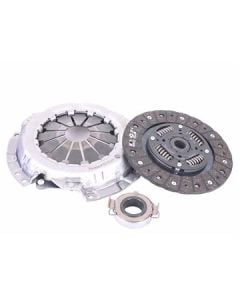Engine Purchasing Specialist Tips on Selecting the Right Engine for Your Particular Demands
Selecting the ideal engine for your specific requirements entails a complex interaction of elements that go beyond simple horsepower figures. By delving into the details of power versus performance, evaluating fuel rankings, and budgeting for lasting prices, one can truly enhance their engine option.
Power Vs. Performance: Locating the Equilibrium

When picking an engine, it is crucial to strike an equilibrium in between power and effectiveness to fulfill your details demands effectively. Power describes the engine's ability to produce energy for propulsion, figuring out aspects like velocity, pulling capacity, and overall performance (Toyota Tazz Engine For Sale). On the other hand, effectiveness relates to how well the engine makes use of gas to produce power, affecting elements such as fuel economy and ecological kindness
Achieving the appropriate balance between power and efficiency is vital due to the fact that an engine that is also effective may take in excessive gas, bring about higher operating expense and unnecessary stress on the atmosphere. Alternatively, an engine that focuses on efficiency over power might cause sluggish performance, especially popular scenarios like hauling hefty tons or driving uphill.
To make a notified decision, consider factors such as your normal driving conditions, the intended use the automobile, and your individual choices. By evaluating your requirements and priorities, you can select an engine that strikes the perfect balance between power and performance, making certain ideal efficiency while lessening ecological impact and operating expense.
Comprehending Engine Size and Type

Usual engine types consist of inline engines, V engines, and rotary engines, each with its distinct benefits and drawbacks. Understanding the interplay between engine dimension and type is essential in picking an engine that straightens with your specific needs and concerns, whether it be power, efficiency, or a balance of both.
Consider Your Vehicle's Demands
If you are looking for an engine for a sturdy vehicle that will be made use of for towing, you will require a powerful engine with high torque abilities. On the other hand, if you are selecting an engine for a compact car mainly made use of for city commuting, fuel efficiency may be a more crucial element to take into consideration.

Evaluating Fuel Efficiency Ratings
Evaluating gas performance rankings is a critical element of selecting the appropriate engine for your automobile, guaranteeing expense financial savings and ecological sustainability. Gas efficiency rankings, commonly determined in miles per gallon (MPG) for gasoline engines or kilowatt-hours per 100 miles (kWh/100 miles) for electrical engines, indicate just how far an automobile can take a trip on a specific amount of fuel or electrical energy. Higher MPG or reduced kWh/100 miles values symbolize more reliable engines, converting to decreased gas costs and reduced carbon exhausts.
Additionally, compare different engine choices within the exact same car class to determine the most economical choice. Factors such as engine size, weight, the rules of aerodynamics, and crossbreed or electrical capabilities can all influence fuel effectiveness.
Budgeting for Long-Term Costs
Purposefully preparing for long-lasting costs is important when picking an engine, making sure financial sustainability over the lorry's life expectancy. While the initial purchase resource cost of an engine is a substantial element, it is crucial to consider the long-term prices related to maintenance, repair work, and gas view intake. Selecting an extra fuel-efficient engine may have a greater ahead of time cost but can result in substantial financial savings over time. Routine upkeep, such as oil modifications, filter replacements, and tune-ups, is necessary to maintain the engine running efficiently and efficiently, minimizing the threat of costly fixings down the line.
Moreover, looking into the accessibility and cost of substitute parts for the chosen engine is vital in budget preparation. Engines with affordable and easily available components can considerably influence long-lasting upkeep expenses. In addition, thinking about the engine's sturdiness and expected lifespan can assist avoid unforeseen replacement prices in the future. By very carefully budgeting for these lasting costs and factoring them into the decision-making process, individuals can pick an engine that not just meets their prompt demands yet likewise remains affordable throughout its life expectancy.
Final Thought
In final thought, picking the right engine for your details needs needs stabilizing power and efficiency, understanding engine dimension and kind, considering your vehicle's demands, assessing fuel efficiency scores, and budgeting for lasting prices. By very carefully taking into consideration these variables, you can ensure that you choose an engine that fulfills your requirements and gives optimal performance for your automobile.
To even more refine the selection Your Domain Name procedure of an engine that strikes the optimum balance in between power and effectiveness, it is important to dig right into the intricacies of recognizing engine dimension and type. Engine dimension refers to the overall volume of air and fuel that can be pressed through the engine cyndrical tubes. Typical engine types include inline engines, V engines, and rotating engines, each with its special advantages and downsides. Comprehending the interaction in between engine dimension and type is crucial in picking an engine that aligns with your particular demands and top priorities, whether it be power, performance, or a balance of both.
Gas efficiency rankings, commonly determined in miles per gallon (MPG) for gas engines or kilowatt-hours per 100 miles (kWh/100 miles) for electric engines, indicate just how much an automobile can take a trip on a details quantity of fuel or electricity.